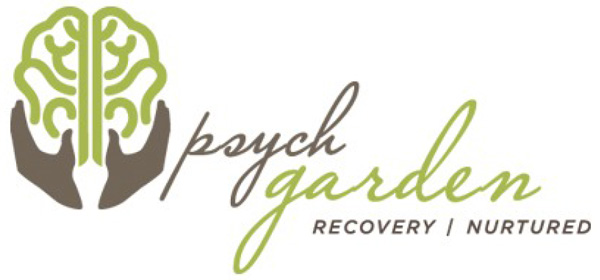Though we hear a lot about opiates – rightly – alcohol use remain terrible problems in Massachusetts. You can take steps to improve the quality of your own life through treatment. However, the cost of alcohol programs in Massachusetts can vary widely and be prohibitive. Treatment is not a quick-fix, a one-time situation which must be all-or-nothing – it’s a marathon, not a sprint and has different phases. Sometimes someone needs a acute detoxification for 3-5 days to safely get them down from high levels of sedatives. That is almost always covered by insurance as a medical necessity. Aside from that, once that bit is done, there are four treatment options, depending on the severity of alcohol dependence, or the impact the alcohol is having on their lives.
Free Community resources – 12-Step, SMART, Life Ring.
Starting with the options readily available at the community level, there are 12-step addictions treatment programs that are sometimes highly effective. These are a fantastic free public health resource that can be utilized at any stage in the program. Using the power of peers with accumulated experience, routine, positive reinforcement from the community and a focus on spiritual depth (honesty, generosity, gratitude, humility) they offer a lot. Unfortunately, many find the religious focus off-putting, they can feel judgemental, they can eschew medications and work for a small percentage of people.
SMART recovery uses a CBT or REBT perspective that is free from spiritual dogma but full of practical guidance, rational decision making and planning and a focus on valued outcomes. Life Ring is an internet-based non-spiritual program.
Outpatient Treatment
Outpatient program care is usually insurance-based care – for good and bad. Insurance companies can decide to cap the amount of treatments to a certain number, or insist you go to a limited pool or therapists–therapists that vary greatly in their training, or therapists that are not only on their panel of approved therapists. Certain insurance companies can reimburse at very different rates, which could drive better therapists out. For this reason, patients will need to decide whether they will go through their insurance plan or go private pay. Private pay treatment often allows an out-of-network coverage that will still reimburse, after a deductible. So, there are many ways to personalize treatment. You can certainly get lucky – for much of the outcome of therapy is about the particular personalities of therapist and client. Insurance based care can be free to a small copay.
Private therapists cost between $150 and $300 an hour depending on licensure. A CADAC or LADAC has done increasing courses specifically in addictions counseling and does not need an undergraduate degree. A LICSW or LMHC is a masters level clinician who has completed a couple of years of coursework and a year or two of supervised counseling or social work. A Ph.D. or PsyD psychologist is doctoral level and has done some 6 years of research or coursework and an internship. Psychologists have done way more work in behavioral therapies, CBT. But a good therapist is half chemistry and caring and half technique. I know some fantastic LADACs and some terrible PsyD’s.
Intensive Outpatient Treatment
Thirdly, there is IOP or Intensive Outpatient Programs. Sadly, the insurance-based programs tend to be very short, and limited. There are a handful of programs in the Boston area that I would recommend. Some are evening programs, important if you need to continue working. That is worth considering, and just four hours every day. IOP’s offer a structure, a crash course in the science of addiction, motivational enhancement therapies, relapse prevention, often some type of anxiety management, peer group engagement, and community and limited personalized therapy. They can be very helpful, giving a bit more In comparison, it will run about $6000 a month for similar private pay programs.
Residential Treatment
Lastly, is a residential treatment. This is, generally, going away for a 30-day treatment, and it can be covered by insurance or private pay. These programs can help a lot and there are some decent programs. While I think very highly of some residential treatments, the problem is that they occur in a bubble. The addicted person has been removed from all of their stressors: their job, their boss, their family, their drug dealer, their liquor store, and their anxieties. It is relatively easy not to drink when there is such an intense focus on alcohol abuse and no triggers. It’s easy to focus only on recovery, and the good things, without all the distractions. However, that can actually be bad, because then they are not actually getting cue exposure and learning how to deal with their triggers, or how to deal with real life. Then when they are discharged and go back to their regular lives, it can be a shock because they are not used to managing any kind of stress. But a protective bubble is sometimes needed! Some are evidence-based, individualized and excellent; others rely heavily on 12-step philosophies and add little. Family involvement, which is absolutely critical for long-term outcomes, can be minimal in programs, despite initial advertisement. Most disturbing is when such places discourage medications (especially for opiate replacement). Over-confident inside their bubble, free from cues and stressors, they believe their approach has the answer, in spite of the poor long-term success of their alumni.
If you are covered by insurance, the cost will depend on your deductible, copay, or coinsurance. It might be $5,000-$12,000 for the whole month. Many people pay for ten to twelve days. Private programs will cost from $18000-70,000 for a month depending on amenities, brand name, the training level of the therapists and the intensity of therapy.
Alcohol Addiction Treatment in Action
Let’s examine a very typical example of a patient who is in treatment with a private practitioner, which can cost $150-300 a week. They might participate at that level for about a month or two. Then, the usual strategy would be to convince the person to go to a residential treatment. There might be an intervention to encourage the person into treatment and that has its own cost – $1000-3000. Many patients step down from residential to an IOP. The family is left reeling, having spent a lot of money, filled with hope that this will be a turning point. They expect the person to be good to go, but things can begin to unravel quickly once home, bombarded by cues and amongst a family untrained to manage things differently.
Total cost is, therefore, $25000 at the lower end, and $70000 at the higher (if you are not using insurance).
Our Approach towards Alcohol Addiction Treatment
In contrast, our method at Psych Garden moves people through different intensities of care. We may use individual therapy, groups, family work, case management, and psychiatric medication management. Approaches are individualized after a careful initial evaluation and re-evaluated regularly in team meeting – both by the staff and together with the client and family. Goals are set early and outcomes reviewed. Free community resources (eg AA or SMART) are encouraged and guided as is fitness, or yoga, and nutrition. Our approach is a holistic one that is committed to the individual’s goals, embedded in their real world and community and based on a deep bio-psycho-social, collaborative and ongoing evaluation.

This is the kind of treatment that should be done in the real world, without removing people from their lives, their families, or their jobs. Addictions work needs to manage the drug use but also work deeply with the person and with their World – their family and peers, their work life and habits and schedules. This can’t be done from a distance. Treatment at home means people are actively constructing a recovery community as they progress through their treatment. We do still refer people to a detox, IOP or residential care – rarely and only when necessary, for very particular purposes.
A normal treatment schedule would be someone coming to our office in Belmont once or twice a week to see their therapist for targeted, evidence-based therapy with someone with years of experience and supervision. They might also come one to two times a week for group therapy – perhaps applied mindfulness or DBT. Their family may be getting training on top of that, in our CRAFT program for which we have traveled for training. At least once a month (perhaps weekly if needed), they would meet with the doctor (board certified, specialist, Harvard trained or faculty) for a medication management of withdrawal, protracted abstinence, management of cravings or underlying and contributory co-morbid psychiatric conditions. In addition to that, they might receive case management – a side by side, community-based coaching model that may help people with sleep, exercise, getting to meetings, organizing their life, setting a budget or applying to a school. For all that, we are looking at paying from $800 and up to $2000 for a, particularly intensive month. While expensive, we believe it is more effective than many more expensive treatment avenues. We have started to collect outcome data to see if that is true (our clients seem pretty clear that it is true).

